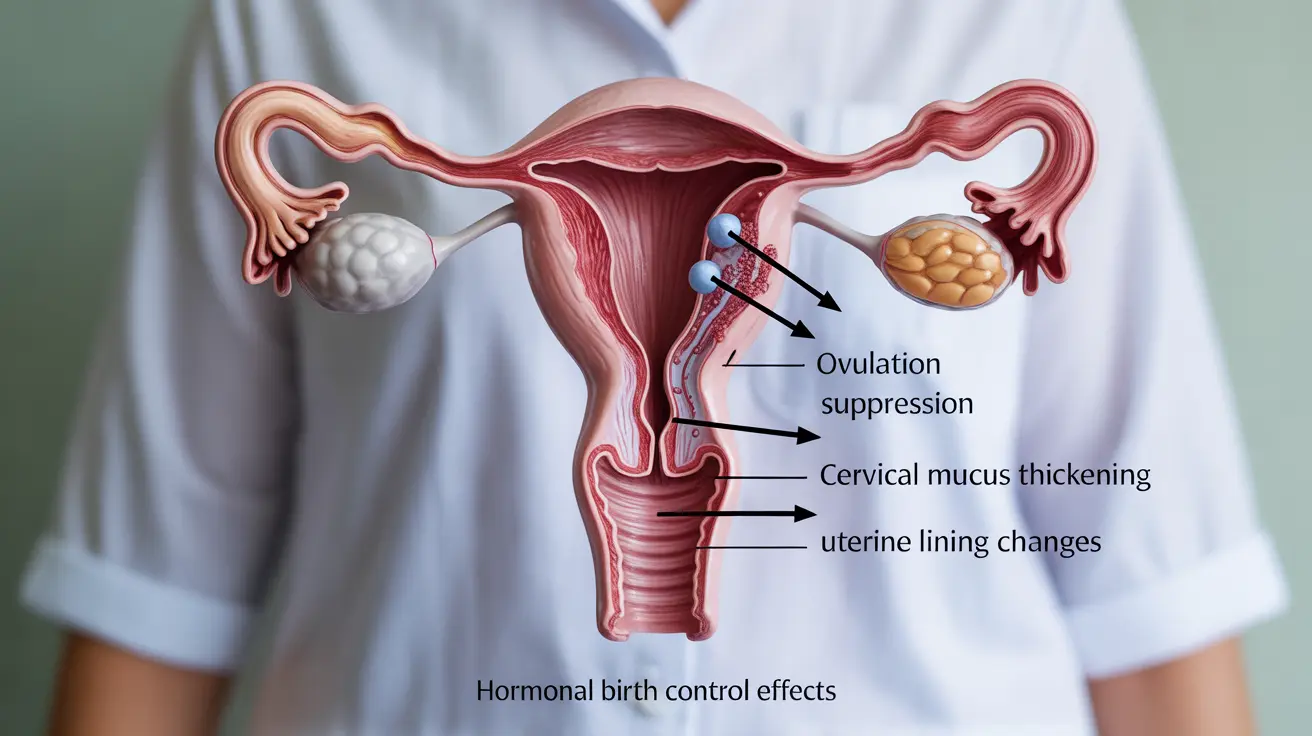Hormonal birth control has become a fundamental part of reproductive healthcare, with millions of women using it to prevent pregnancy and manage various health conditions. Understanding what birth control does to your body is crucial for making informed decisions about your reproductive health and overall wellbeing.
Whether you're considering starting birth control or are already using it, knowing its effects on your body can help you better manage potential side effects and recognize when to consult your healthcare provider. Let's explore the various ways hormonal birth control influences your body's systems and functions.
How Birth Control Works in Your Body
Hormonal birth control primarily works by using synthetic versions of estrogen and progesterone to prevent pregnancy. These hormones work together to stop ovulation, thicken cervical mucus, and thin the uterine lining, creating multiple barriers to prevent pregnancy.
Immediate Effects on Your Body
Changes in Menstrual Cycle
One of the most noticeable effects of hormonal birth control is the regulation of your menstrual cycle. Many women experience lighter, more predictable periods, while others might have irregular spotting during the first few months of use.
Hormonal Adjustments
During the initial weeks of taking birth control, your body undergoes various hormonal adjustments. You might experience mood changes, breast tenderness, or slight nausea as your body adapts to the new hormone levels.
Long-term Effects and Benefits
Positive Health Benefits
Beyond pregnancy prevention, hormonal birth control can offer several health benefits:
- Reduced menstrual cramps and pain
- Improved acne
- Lower risk of ovarian and endometrial cancers
- Better management of endometriosis symptoms
- More regular menstrual cycles
Potential Health Considerations
While birth control is generally safe, it's important to be aware of potential health implications:
- Slightly increased risk of blood clots
- Potential impact on blood pressure
- Changes in libido
- Possible mood fluctuations
- Minor weight fluctuations
Effects on Fertility and Future Pregnancy
Many women wonder about the long-term impact of birth control on their fertility. Research shows that fertility typically returns quickly after stopping hormonal birth control, though the timeline can vary among individuals.
Frequently Asked Questions
- What physical and emotional changes can hormonal birth control cause in the body?
Hormonal birth control can cause physical changes like breast tenderness, lighter periods, and possible weight fluctuations. Emotional changes may include mood swings, decreased anxiety about pregnancy, and in some cases, depression or mood improvements.
- How does birth control affect your menstrual cycle and fertility?
Birth control regulates your menstrual cycle, often making periods lighter and more predictable. It temporarily prevents pregnancy while using it, but fertility typically returns quickly after discontinuation.
- What are the common side effects of birth control pills and how long do they last?
Common side effects include spotting, nausea, breast tenderness, and mood changes. These typically improve within 3-6 months as your body adjusts to the hormones.
- Can hormonal birth control increase the risk of serious health issues like blood clots or cancer?
While hormonal birth control slightly increases the risk of blood clots, it actually reduces the risk of certain cancers, including ovarian and endometrial cancer. The overall risk of serious complications is very low for most women.
- What happens to your body when you stop taking hormonal birth control?
When stopping birth control, your natural menstrual cycle will return, though it may take a few months to regulate. Fertility usually returns quickly, and any side effects experienced while on birth control typically resolve.
Understanding these effects can help you make informed decisions about your reproductive health. Always consult with your healthcare provider about which birth control method is most appropriate for your individual needs and medical history.




